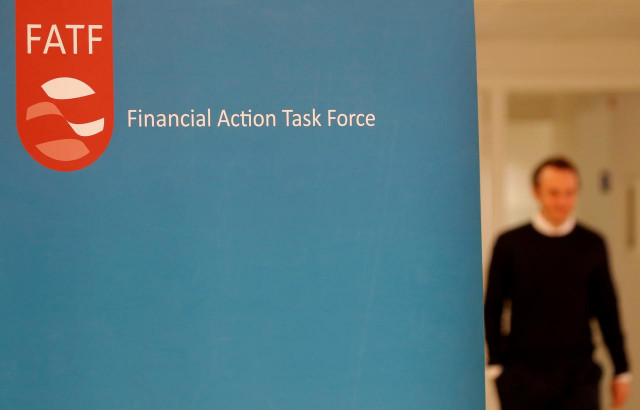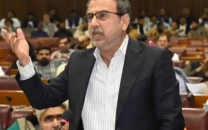PTI govt finally engages with opposition on FATF bills
Fears that it may fail to get parliament’s nod even at joint session

The PTI led federal government has been compelled to start consultation with two major opposition parties over a couple of crucial Financial Action Task Force (FATF) related bills that failed to sail through the Senate last month.
The upper house of the parliament, where the opposition enjoys majority, rejected on August 25 the Anti-Money Laundering (Second Amendment) Bill and the Islamabad Capital Territory (ICT) Waqf Properties Bill that were passed by the National Assembly – the lower house – a day earlier.
After rejection of the bills, which the government claims are necessary to come out of the FATF grey list, the Ministry of Parliamentary Affairs decided to suggest summoning a joint session.
However, the government is not likely to get the parliament’s nod even at a joint session and the government has started secret talks with opposition parties to win their support.
According to sources, the government is employing the National Assembly Speaker Asad Qaiser and federal and state ministers – Pervez Khattak, Fakahr Imam and Ali Muhammad Khan – to hold talks with the opposition parties.
The opposition parties have started sharing their sets of amendments to the bills and allegedly agreed to support the bill if the government incorporates their amendments to the legislations. The sources said the government had to defer the joint session in view of these consultations.
They said the government ministers have contacted Sardar Ayaz Sadiq and Rana Tanveer Hussain from the PML-N and Syed Naveed Qamar and Raja Pervaiz Ahraf from the PPP. The government is also likely to approach the religious parties particularly the JUI-F.
In case the government incorporates the amendments proposed by the two major parties, it will not requisition the parliament’s joint session. It will first withdraw the former bills and then table the amended bills once again in both houses separately.
According to some sources, the government will have no option left but to requisition the parliament’s joint session in case it rejects the amendments being proposed by the opposition parties.
The FATF – a global body that develops policies to curb money laundering and terror financing – put Pakistan on its grey list in June last year. Pakistan has to meet its 27-point action plan to escape getting blacklisted as a non-compliant nation.
When the opposition blocked the bills last month, Prime Minister Imran Khan had accused it of sabotaging the government’s efforts to exit the FATF grey list, claiming that they wanted to put Pakistan on the FATF blacklist and were threatening to bring down the government unless offered an NRO – a secret deal.
“Let me make clear: No matter what happens, my government will not allow any NRO as it would be a betrayal of the nation's trust in holding plunderers of public wealth accountable.
“[General Pervez] Musharraf gave NROs to the two political leaders [Nawaz Sharif and Benazir Bhutto] which quadrupled our debt and destroyed the economy. There will be no more NROs,” the premier had written on micro-blogging site Twitter.



















COMMENTS
Comments are moderated and generally will be posted if they are on-topic and not abusive.
For more information, please see our Comments FAQ